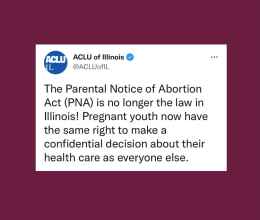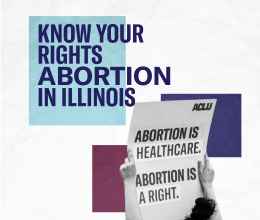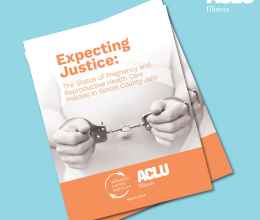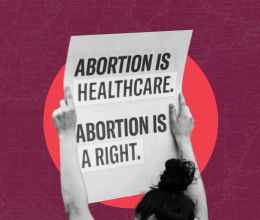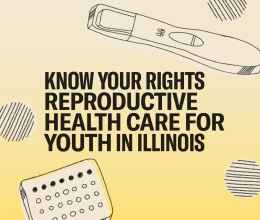
CHICAGO - Citing "serious and irreversible harm to teens," the American Civil Liberties Union asked an Illinois court to strike down a newly effective law that prevents teens from having an abortion unless they notify a parent or go to court.
The lawsuit, on behalf of Illinois medical providers and their patients, notes that most young women who seek abortions already involve their parents and that health care providers help patients facilitate that communication. But, the legal papers filed today focus on the harm to young women, particularly those from dysfunctional homes, who cannot safely involve a parent. Experts involved in the lawsuit cite numerous real-life examples of teens whose parents beat them, threw them out of the house, and/or forced them to become a parent against their will when they found out about the pregnancy. The lawsuit also includes examples of teens who could not turn to a parent and instead took drastic measures to try to end a pregnancy.
"We all want our daughters to come to us, and most do. But the most important thing is that our daughters are safe and can get the care they need," said Lorie Chaiten, Director of the Reproductive Rights Project at the ACLU of Illinois and lead counsel in the case. "Because these laws pose such serious dangers for teens who can't turn to a parent, every leading medical organization, including the American Medical Association and the American Academy of Pediatrics, opposes them."
Although the law includes a process for teens to seek a waiver from a judge, today's lawsuit notes that for many teens the prospect of going to court and revealing the most intimate details of their lives to a judge is too daunting to provide a realistic alternative. For other teens, the lawsuit notes, the challenges of arranging transportation and getting to court are insurmountable, and the court process itself necessarily subjects young women to medically risky delay and to the risk that their pregnancy and abortion decision will be revealed to people who know them. In addition, in the papers filed today, the ACLU charges that Illinois courts are not prepared to handle these cases.
"Sadly, we know that many of the courts in Illinois are not ready to handle these cases in a manner that protect the young women's rights to confidentiality and expedition." added Chaiten. "Even where the courts are prepared, we know that the process delays young women and puts their confidentiality at risk, while serving no purpose."
Today's challenge also notes the irrationality of the new law. Until now, Illinois has allowed minors to make all decisions concerning their pregnancy. They could decide to continue the pregnancy and parent the child, they could decide to have the baby and place it for adoption, or they could choose to have an abortion. The new law singles out those teens who choose abortion and requires only them to tell a parent or go to court. Teens who continue the pregnancy can still make all of their own medical decisions without consulting a parent.
"The decision to continue a pregnancy and have a child has far more serious and long-lasting consequences for a teenager than does the decision to terminate the pregnancy," said Kathleen Roach of Sidley Austin LLP, co-counsel for the Plaintiffs. "Placing restrictions only on teens who choose abortion lacks any justification and violates the state Constitution."
The Illinois Parental Notice of Abortion Act of 1995 had been enjoined and dormant since its passage by the Illinois General Assembly. This summer, the Seventh Circuit Court of Appeals dissolved the permanent injunction. The filing by the ACLU in state court challenges the law on state constitutional grounds. The Plaintiffs in the case are Hope Clinic for Women Ltd. and Dr. Allison Cowett, the Director of the University of Illinois at Chicago's Center for Reproductive Health, on behalf of themselves and their minor patients. The plaintiffs are represented by Lorie Chaiten, Leah Bartelt and Khadine Bennett of the ACLU of Illinois, Kathleen Roach, Rachel Niewoenher, Sheila Gogate and Geeta Malhorta of Sidley, Austin LLP and Jennifer Dalven and Alexa Kolbi-Molinas from the ACLU Foundation.
